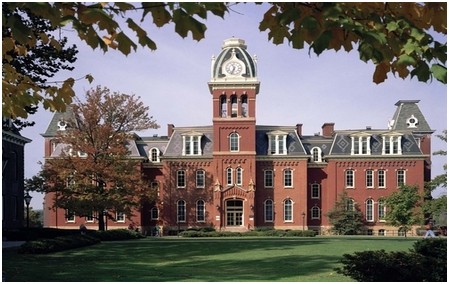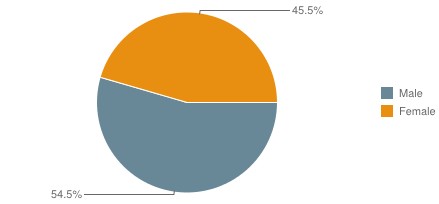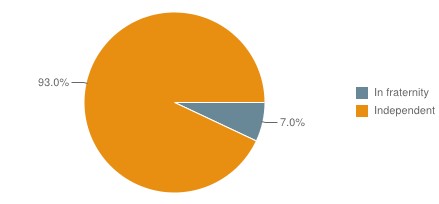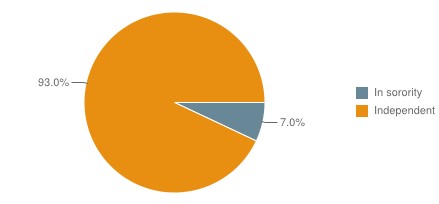
West Virginia University
USINFO | 2014-01-06 17:35

West Virginia University is a public institution that was founded in 1867. It has a total undergraduate enrollment of 22,827, its setting is suburban, and the campus size is 2,737 acres. It utilizes a semester-based academic calendar. West Virginia University's ranking in the 2014 edition of Best Colleges is National Universities, 170. Its in-state tuition and fees are $6,456 (2013-14); out-of-state tuition and fees are $19,632 (2013-14).
West Virginia University is a public institution located in the small city of Morgantown, in the northern part of the state, along the Monongahela River. Situated near the Pennsylvania border, the WVU campus is an easy drive to the cities of Pittsburgh, Cleveland, and Washington, which is convenient for students who want to take a break from academics for the weekend. WVU offers nearly 200 bachelor’s, master’s, doctoral, and professional programs within 14 colleges. A few of the graduate degrees available include those in the College of Business and Economics, the College of Engineering and Mineral Resources, and the School of Medicine, which is home to the highly ranked rural medicine and primary care programs.
Students at WVU can help others through the Center for Civic Engagement, which gives class credit for community service and promotes events such as Random Acts of Kindness Week. There are also more than 300 student organizations for students to try, including nearly 30 Greek chapters, as well as club and intramural sports. For varsity athletics, students can choose from nearly 20 WVU Mountaineers teams, which compete in the NCAA Division I Big East Conference. Notable WVU alumni include Don Knotts, better known as the gawky deputy Barney Fife in The Andy Griffith Show.
School mission and unique qualities (as provided by the school):
According to the school, if you want to challenge yourself, choose WVU. A tradition of academic excellence attracts exceptional high school seniors. WVU has produced 24 Rhodes Scholars, 36 Goldwater Scholars, 22 Truman Scholars, five members of USA Today's All-USA College Academic First Team, nine Boren Scholars, five Gilman Scholars, three Department of Homeland Security Scholars, and 31 Fulbright Scholars (five in 2012 alone). WVU is among the top 15 public universities in the number of students earning Rhodes Scholarships. WVU is also one of the few schools in the country that are land-grant, doctoral research universities with a comprehensive medical school. The institution offers 184 degree programs at the bachelor's, master's, and doctoral levels through 14 colleges and schools, including five professional schools: dentistry, medicine, nursing, pharmacy, law, and a brand-new School of Public Health. WVU has the nation's 14th-most affordable tuition for out-of-state students. Whether your goal is to be an aerospace engineer, reporter, physicist, athletic trainer, forensic investigator, teacher, dancer, pharmacist, or CEO, WVU can make it happen. In 2011, WVU received $173,874,105 in total sponsored research projects, and is classified as a Research University (High Research Activity) by the Carnegie Foundation. Research focus areas include STEM education, healthcare in Appalachia, utilizing shale gas responsibly, investigating pulsars through radio astronomy, and promoting stewardship of water resources. The University partnered with the FBI to found one of the first accredited forensics programs in the nation, and the FBI named WVU its national leader for biometrics research. Students learn hands-on in three crime scene houses, a forensic garage, and an 18,000 square foot dedicated forensic laboratory. WVU is also home to the Blanchette Rockefeller Neurosciences Institute, the world's first institute devoted to the study of human memory. Undergraduates have the chance to participate in real research opportunities with internationally respected faculty, and a WVU-founded journal is dedicated to publishing undergraduate research findings. Unique student-centered initiatives extend learning beyond the classroom and lab. Resident Faculty Leaders live next to the residence halls to mentor students, and WVUp All Night provides free food and activities on weekends. The Mountaineer Parents Club connects 22,000 WVU families, while a toll-free helpline answers parents' questions. The Student Recreation Center includes athletic courts, pools, weight/fitness equipment, and a 50-foot indoor climbing wall. It is also possible to rock climb, hike, and go white-water rafting nearby, and a walking trail in town follows the Monongahela River. A member of the Big 12 Conference, WVU competes in 17 intercollegiate varsity sports. There are over 300 students organizations on campus. A major building campaign is under way, with new facilities for student health, housing, and more classrooms being constructed. Morgantown has been ranked as the #1 dreamtown in the country, the 9th best college town in America, and as the 7th best small place for business and careers. Students are truly part of the community, and provided nearly 70,000 hours of service in 2010. WVU has earned the Carnegie Foundation's Community Engagement Classification: only 6% of all universities have. Students come to WVU from every West Virginia county, 50 states and Washington, DC, and 102 countries because WVU encourages and nurtures diversity. Over 185,000 alumni have been prepared for personal and career success, forming a worldwide network of Mountaineers.
General Information
| School type | public, coed college |
| Year founded | 1867 |
| Religious affiliation | N/A |
| Academic calendar | semester |
| Setting | suburban |
| 2012 Endowment | $422,576,830 |
Applying
When applying to West Virginia University, it's important to note the application deadline is August 1. Scores for either the ACT or SAT test are due August 1. The application fee at West Virginia University is $45. It is selective, with an acceptance rate of 85.1 percent.
| Selectivity | selective |
| Fall 2012 acceptance rate | 85.1% |
| Application deadline | August 1 |
| SAT/ACT scores must be received by | August 1 |
Academic Life
The student-faculty ratio at West Virginia University is 23:1, and the school has 35.1 percent of its classes with fewer than 20 students. The most popular majors at West Virginia University include: Business, Management, Marketing, and Related Support Services; Engineering; Multi/Interdisciplinary Studies; Communication, Journalism, and Related Programs; and Health Professions and Related Programs. The average freshman retention rate, an indicator of student satisfaction, is 78.8 percent.
| Class sizes | |||||||||||
 |
|||||||||||
| Student-faculty ratio | 23:1 | ||||||||||
| 4-year graduation rate | 34% | ||||||||||
| Five most popular majors for 2012 graduates | |||||||||||
|
|||||||||||
Student Life
West Virginia University has a total undergraduate enrollment of 22,827, with a gender distribution of 54.5 percent male students and 45.5 percent female students. At this school, 25 percent of the students live in college-owned, -operated, or -affiliated housing and 75 percent of students live off campus. West Virginia University is part of the NCAA I athletic conference.
| Total enrollment | 29,707 |
| Student gender distribution | |
 |
|
| Undergraduate men who are members of a fraternity | |
 |
|
| Undergraduate women who are members of a sorority | |
 |
|
| Collegiate athletic association | NCAA I |
Campus Info & Services
West Virginia University offers a number of student services including nonremedial tutoring, women's center, placement service, day care, health service, and health insurance. West Virginia University also offers campus safety and security services like 24-hour foot and vehicle patrols, late night transport/escort service, 24-hour emergency telephones, lighted pathways/sidewalks, and controlled dormitory access (key, security card, etc). Alcohol is permitted for students of legal age at West Virginia University.
| Students who have cars on campus | N/A |
| Health insurance offered | Yes |
Paying for School
At West Virginia University, 61.5 percent of full-time undergraduates receive some kind of need-based financial aid and the average need-based scholarship or grant award is $4,748.
| In-state tuition and fees | $6,456 (2013-14) |
| Out-of-state tuition and fees | $19,632 (2013-14) |
| Room and board | $9,318 (2013-14) |
Share this page



















